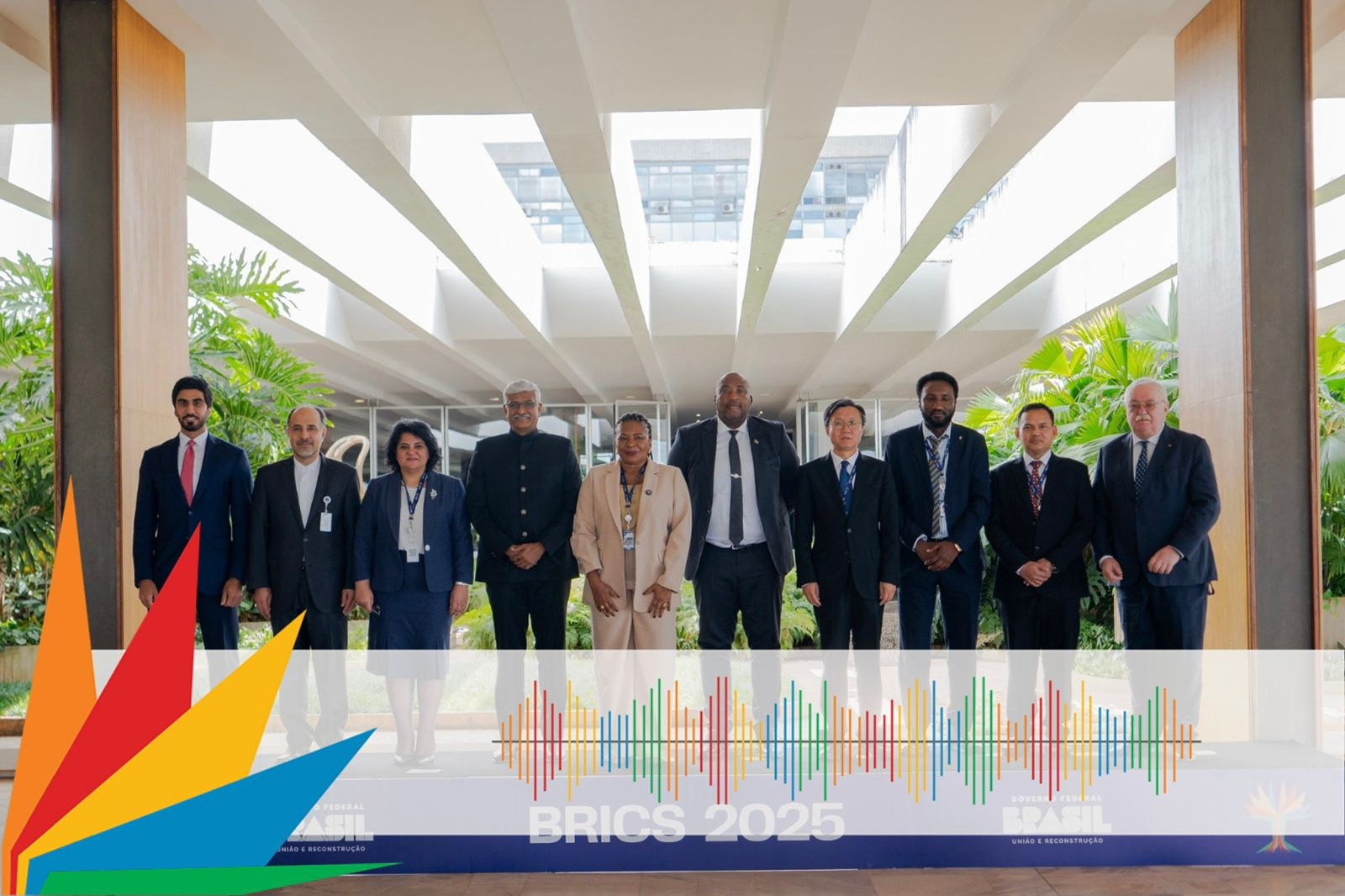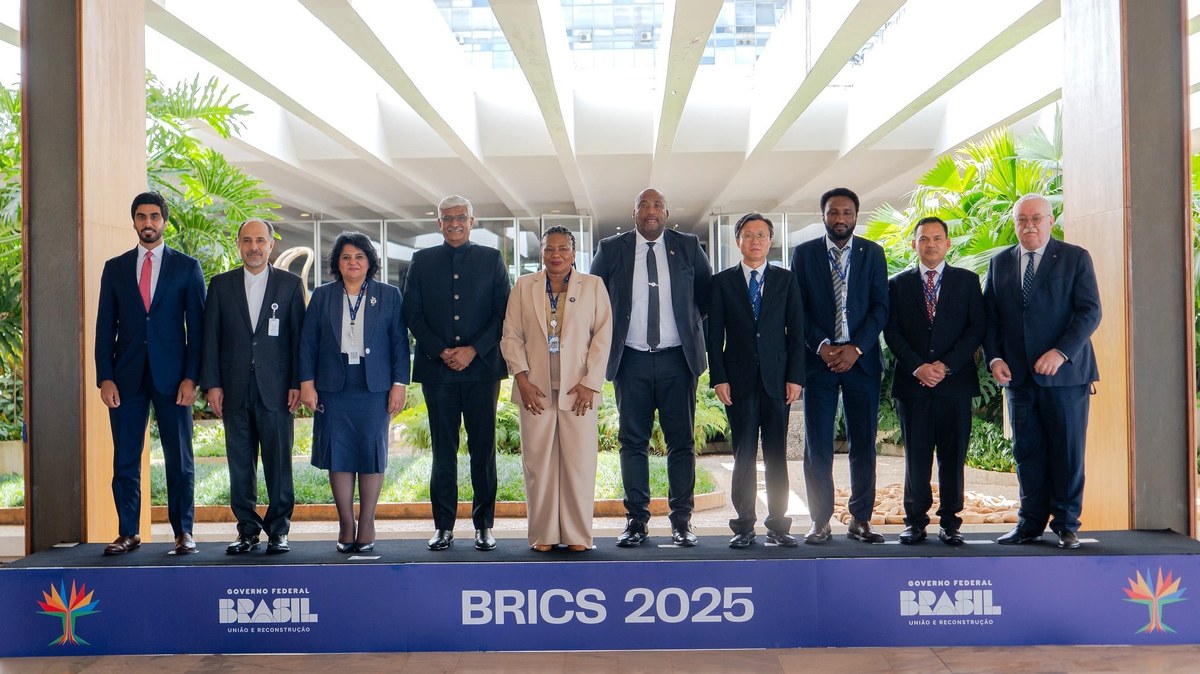BRICS Brasil Bulletin #10 - Culture and Climate: BRICS Deepens Cooperation, Highlights Role of Culture as Driver of Sustainable Development
BRICS ministers advance cultural alliances as a pillar of sustainable development, call for the repatriation of cultural assets, promote creative economies, and advocate for cultural responses to the climate crisis. Listen to the report to learn more.

Report: Leandro Molina / BRICS Brasil
Voice-over: Rebeca Rodrigues
Reporter: The 10th Meeting of BRICS Ministers of Culture, held at the Itamaraty Palace in Brasilia, marked a new chapter in cultural cooperation among the group’s member countries with the approval of a joint declaration. The document, titled the Brasilia Declaration, reflects the consensus reached among BRICS member states and sets out ambitious guidelines for the coming years. The ministers reaffirmed the role of culture as a driver of economic growth, innovation, and social cohesion, as highlighted by Brasil’s Minister of Culture, Margareth Menezes.
Margareth Menezes: The motto of Brasil’s BRICS presidency, Strengthening Global South Cooperation for More Inclusive and Sustainable Governance, calls on us to position culture as a vector for economic, social, and sustainable development. President Lula has consistently emphasized his vision of BRICS as a space for diversity, dialogue, and joint action to meet today’s challenges.
Reporter: The declaration acknowledges the cultural and creative sectors as strategic components in generating employment, income, and innovative skills. The repatriation of cultural assets stolen or removed from their countries of origin during colonial times or in conflict scenarios also took center stage. Ministers stressed that returning these items is a matter of historical justice, as underscored by South Africa’s Minister of Sports, Arts and Culture, Gayton McKenzie.
Gayton McKenzie: Well, BRICS has given all partner countries the opportunity to give their voice back in many aspects — in the financial, cultural, and even sports world. Why is it important for us? Because it is not only the financial aspect of bringing back the artifacts and stolen properties of our country. It has to do with dignity. It is related to three fundamental points: the financial and dignity aspects and a healing process.
Reporter: During the meeting, Ambassador Laudemar Aguiar Neto, Secretary for Trade Promotion, Science, Technology, Innovation, and Culture at the Brazilian Ministry of Foreign Affairs, reinforced BRICS’ role as a transformative force in the global order.
Laudemar Gonçalves de Aguiar Neto: BRICS countries share not only a strategic position in the international system but also a common aspiration: to reform global structures and make them fairer, more representative, and inclusive. BRICS has the legitimacy, diversity, and political weight to act as a catalyst for a new global order—more balanced, less exclusionary, and truly multilateral.
Reporter: The declaration will be formally presented at the BRICS Leaders’ Summit in July, where the presidents and prime ministers of member countries are expected to endorse the cultural guidelines approved by the ministers
English version: Kelvis Santiago do Nascimento - UFC/POET
Proofreading by Judas Tadeu de Azevedo Neto - UFC/POET
